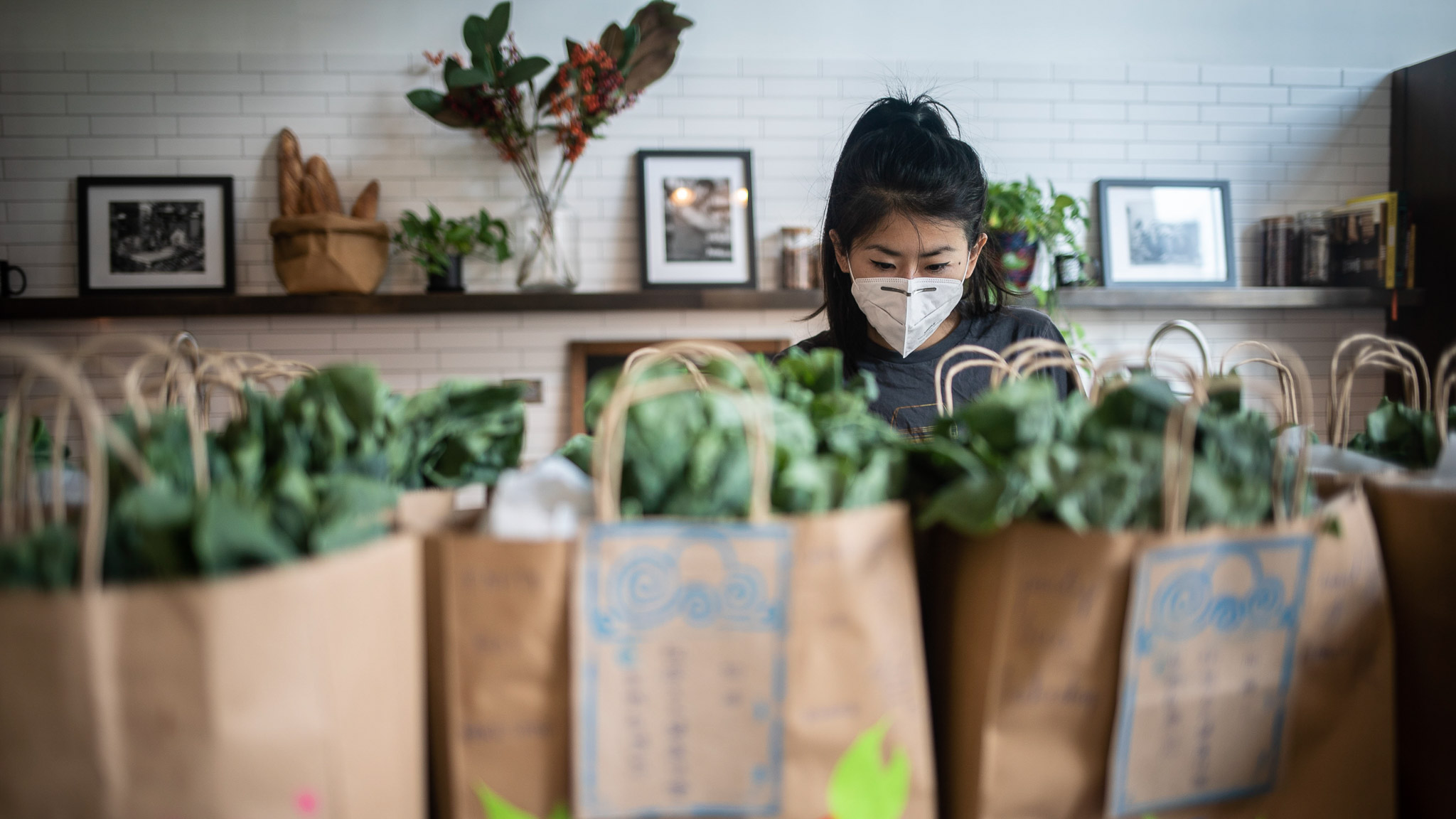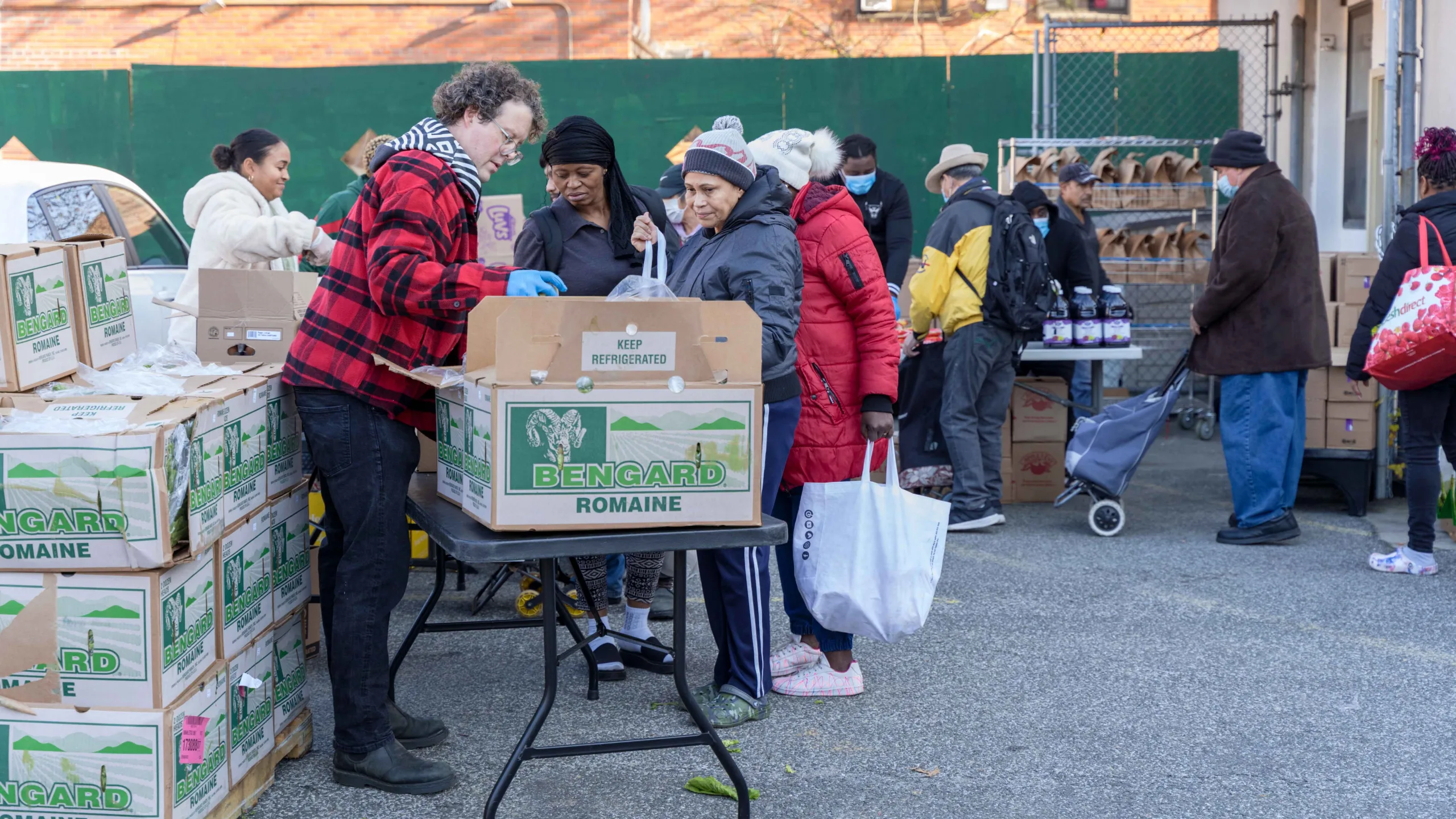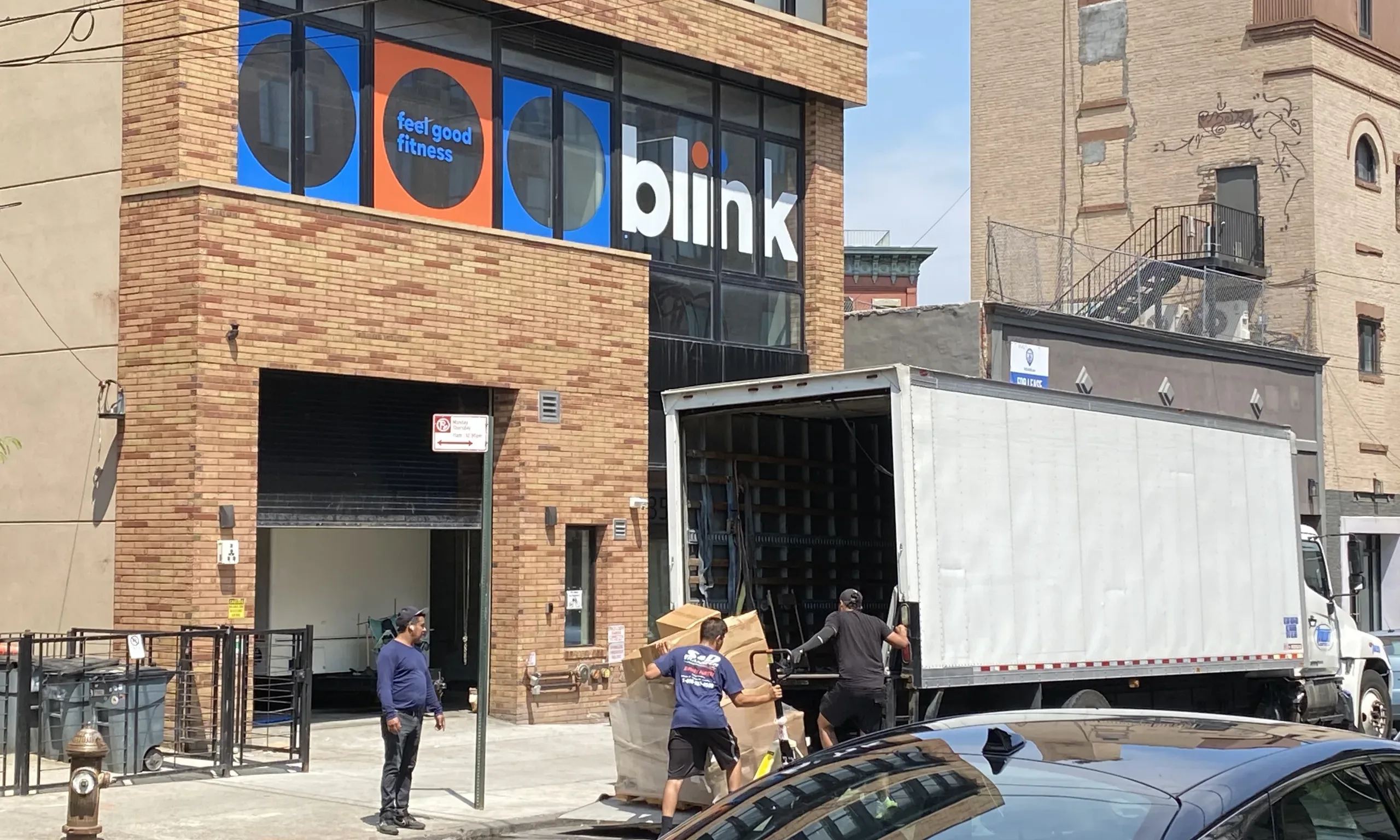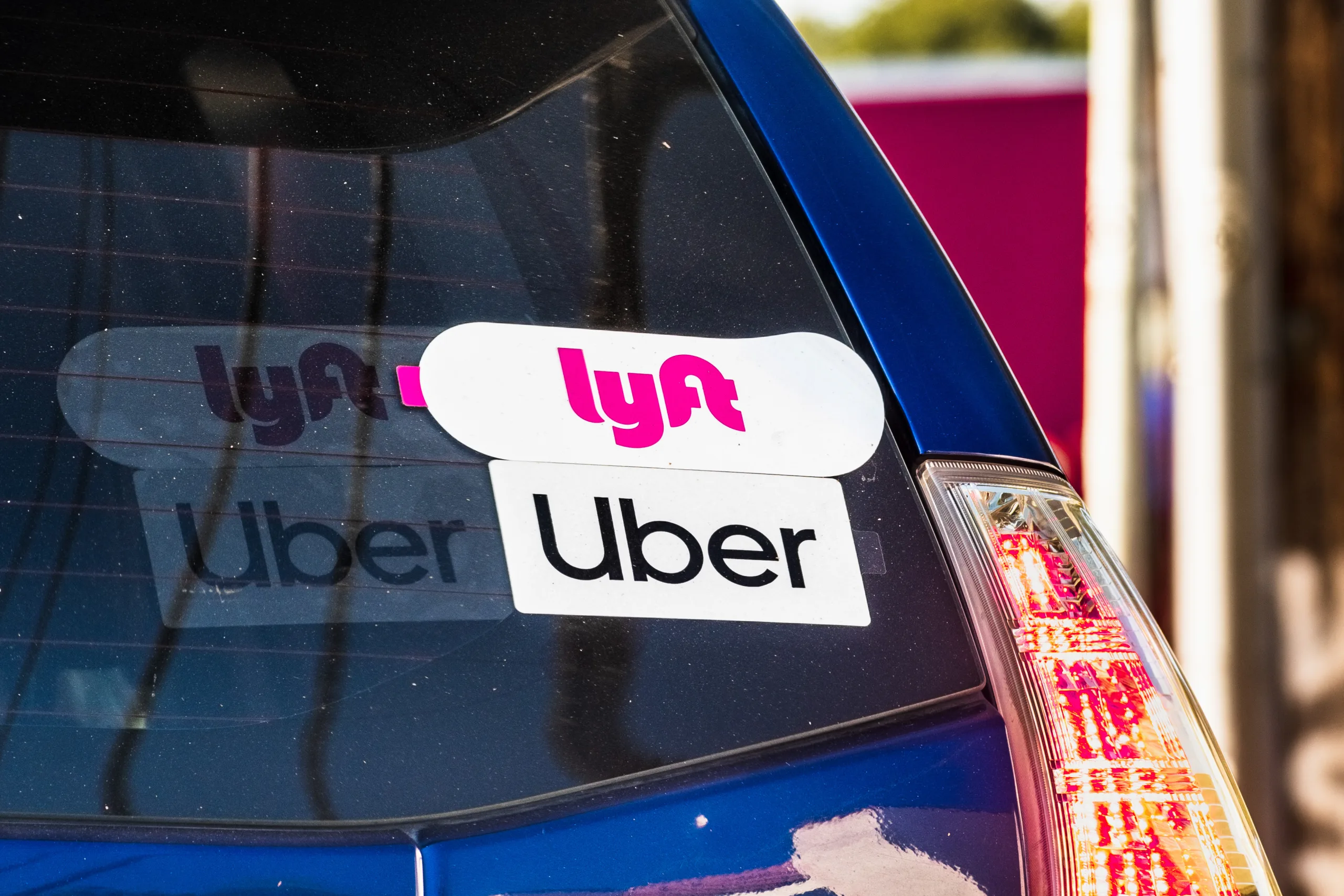In early February last year, Gabi Tran sat in Hop Shing, watching the waiters sitting idly by. It should have been a busy night but the iconic dim sum spot in Manhattan’s Chinatown had few diners.
Customers had begun avoiding Chinatown early during the pandemic, in part driven by the fear that the coronavirus came from China (though later reports confirmed that it was travelers from Europe and other parts of the US who brought early cases to New York City). This was evident to Tran. Everywhere she looked, she was met with empty streets. And it was a harbinger of what was to come: Hop Shing closed its doors permanently a few months after that night.
Also read: Jing Fong’s Workers are Fighting to Keep Their Chinatown Restaurant Alive
For Tran, Chinatown is a home away from home. She was born to a Vietnamese father and a Chinese mother in Brooklyn and was raised there until she was six years old. Then her family moved to neighboring New Jersey, where she was often the only Asian in her surroundings. She’d always return to New York City’s Chinatown to visit family and get snacks that “were relatable.” She knew that the small business owners she’d grown up visiting were operating on low-margins before the pandemic. Now that they were left to their own devices to fend for their survival she felt compelled to step in and help.
Since the spring of 2020, more and more Asians in New York have joined hands to address what they say was suffering within their communities that governments and the public at large mostly ignored. They are depleting their savings and working around the clock to remedy issues that mom-and-pop stores as well as elderly communities are facing, not just due to the pandemic, but in large part also due to the anti-Asian xenophobia that political rhetoric around the coronavirus brought about.
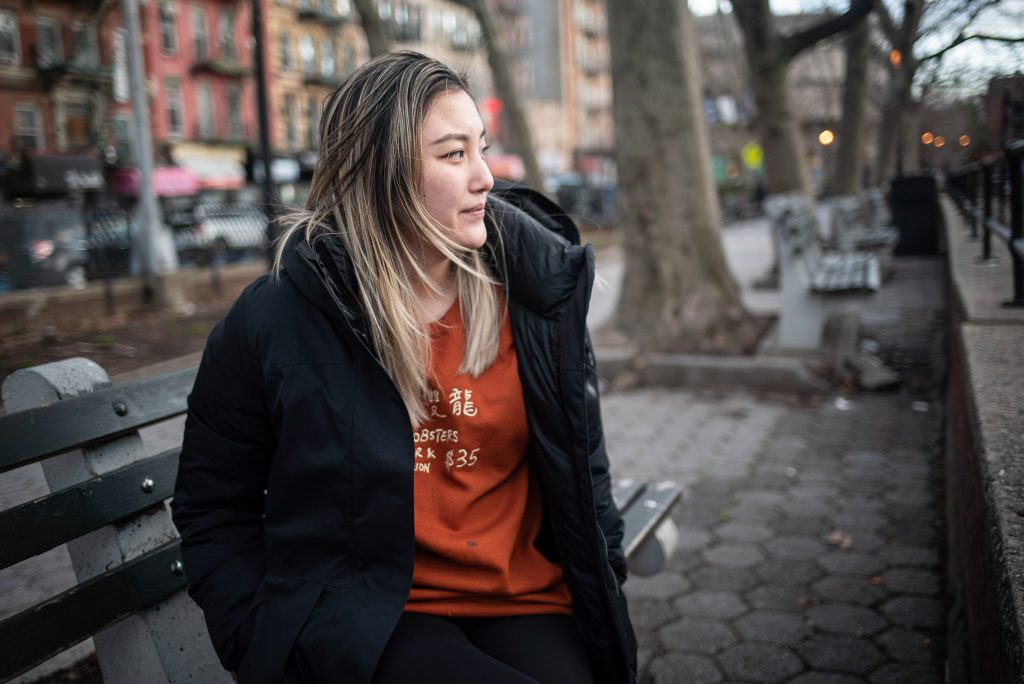
In March of 2020 when she was still a senior in college, Tran joined Welcome to Chinatown as a volunteer. The grass-roots organization formed during the pandemic to help Asian businesses weather this recession. Early on, the group made it clear that their existence was deeply rooted in fighting the rising xenophobia they saw in Chinatown, sounding alarm bells around anti-Asian incidents just two weeks after lockdown policies swept the country to contain the pandemic.
The group began by learning more about the needs of the Chinatown community, speaking to organizers like Think! Chinatown and posting updates about local businesses. The number Asians in New York City applying for unemployment surged 6,000% from February to June of 2020, outpacing any other ethnic groups, according to the Asian American Federation. Working class Asians also made up the largest proportion of people working in industries that suffered the most during the pandemic, like apparel manufacturing or personal and laundry services, the report stated.
Welcome to Chinatown started an initiative to buy meals from Asian restaurants that were struggling economically to feed front-line workers in New York City. They also started the “Longevity Fund,” to provide grants of $5,000 to struggling businesses.
“There were disparities in accessing the PPP loans,” said Tran, mentioning “language barriers” and bureaucratic hurdles like not having a proper bookkeeping to qualify.
Seeing mom-and-pop shops not be “able to have equitable access to existing government assistance programs really caused us to say ‘hey if you [the government] guys aren’t going to create something that’s going to help these small businesses out, we’ll create something that is equitable and inclusive,” said Tran.
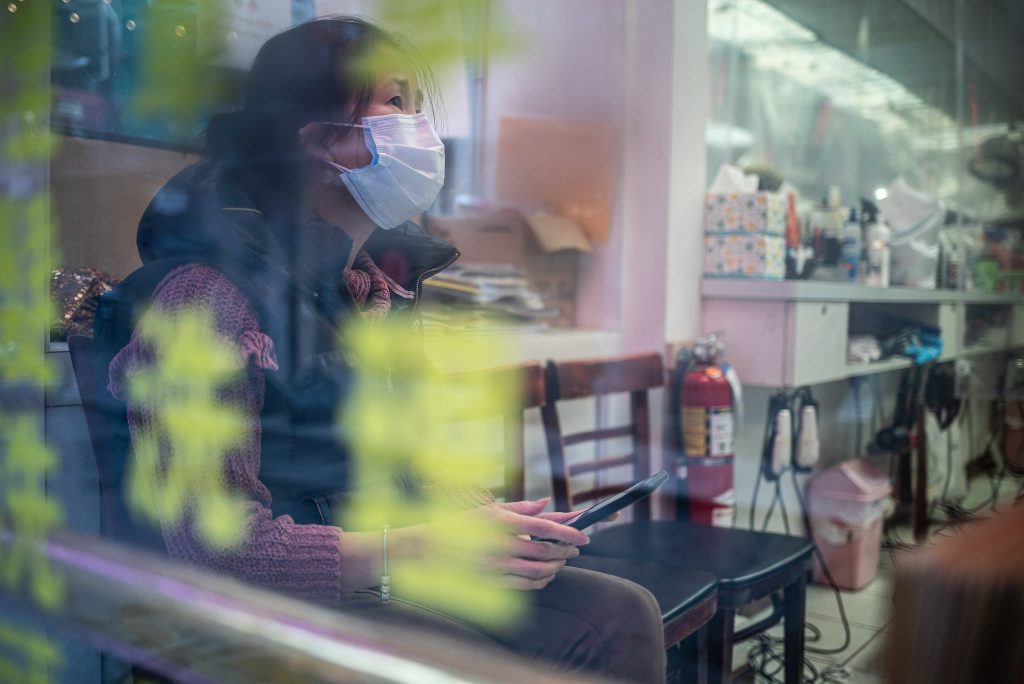
Chinatown ignored during the pandemic
Ming operates two small hair salons in Chinatown and received a grant from Welcome to Chinatown. She had applied for a government loan multiple times but all of her applications were rejected, she said.
“Maybe my shop is so small that the government doesn’t care about our life or death,” Ming told Documented (She wanted to only be referred to by her first name). She said that business has been down by 70% since the pandemic hit, and she is at the brink of bankruptcy.
“Many of the guests who have been here for a long time have not come, and as far as I know, many people cut their own hair at home, even if they come out to get a haircut,” Ming told Documented.
Ming’s hair salons are on Pell and Doyle Streets, two small alleys that are just out of view from the adjacent and generally more busy Mott and Grand Streets. In a neighborhood where prices keep increasing, Ming’s shops provide low-cost haircuts that range from $10 and $20.
On a recent Thursday, the shop was almost empty with the exception of one younger customer whose parents had brought him to Chinatown from Brooklyn for a quick trim. His parents, former Burmese refugees, have been bringing their son to the shop for close to 15 years, partly because they liked one of Ming’s employees, a jovial curly-haired man, who is also from Myanmar.
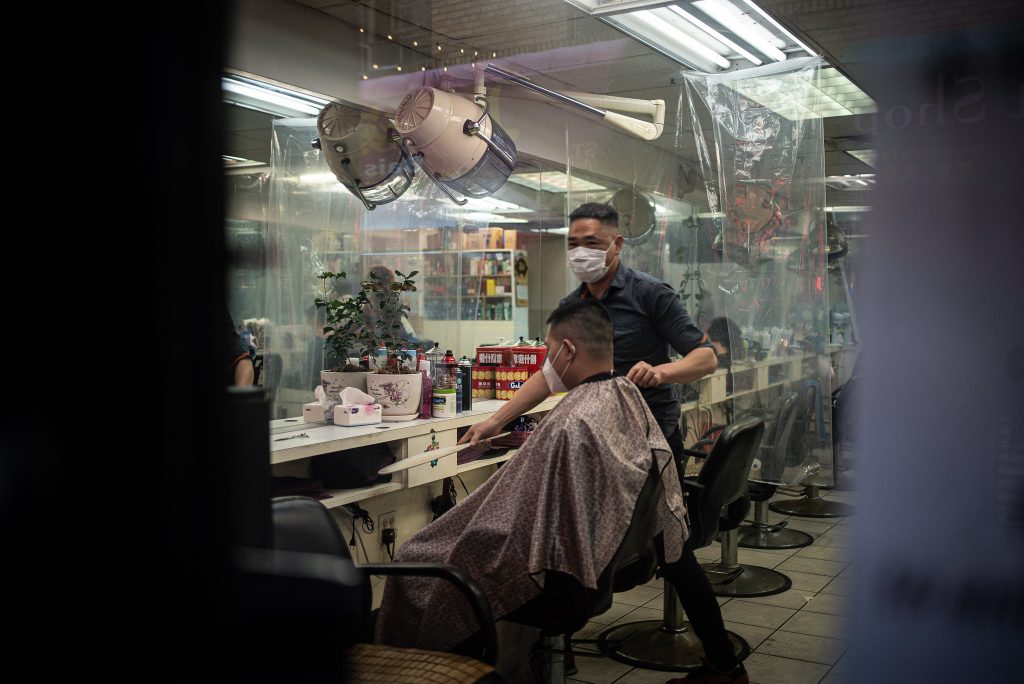
Like a number of other Chinatown businesses, Ming’s shops are also located in a zip code that does not qualify for loans that New York City’s Small Business Administration issues. This loan program was launched in November of last year separately from the federal PPP loans.
The shops’ proximity to nearby expensive areas like SoHo, means that Ming’s hair salons are located in an area that has a median income that is too high to qualify for assistance.
Related: Pearl River Mart Was Never Just a Store. It Was Always a Movement
“The epidemic is certainly fatal to our small business,” Ming told Documented via text message. “Now the business is not good, and the government departments do not lend us a helping hand.”
She learned of Welcome To Chinatown through a friend, applied and then received $5,000. Even though she is one of several barber shops and hair salons on that street, she’s been bonding with her competitors, exchanging the latest information on government aid and other regulations.
“Without their help, our shop might have closed down a few months ago. Although we are still facing the brink of bankruptcy. But I will hold on until the last minute,” she said.
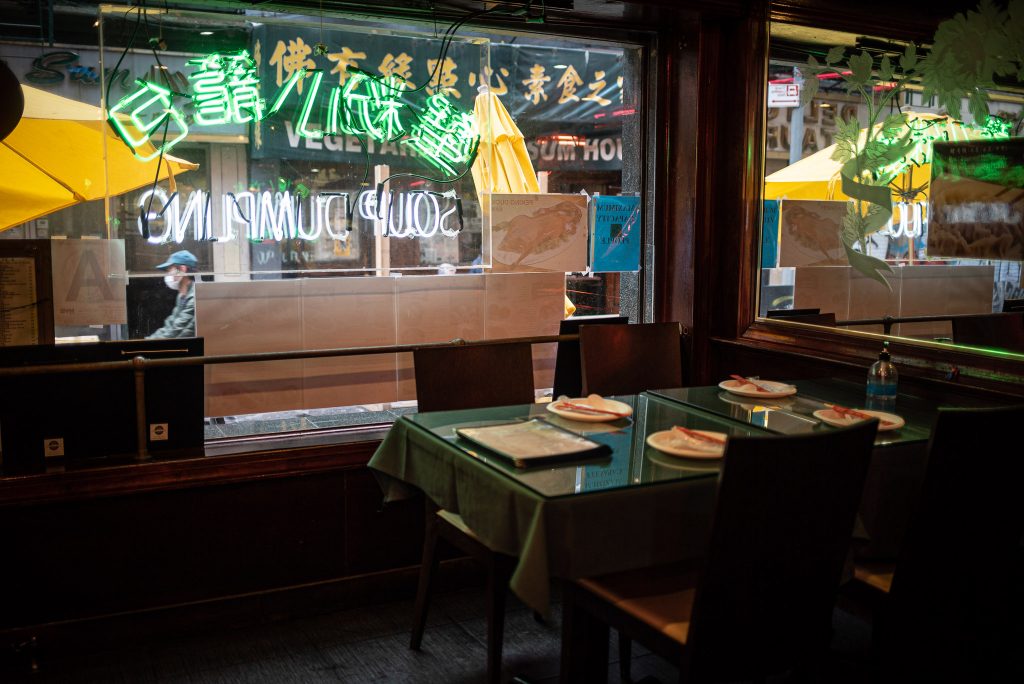
Welcome to Chinatown has distributed roughly $225,000 in small grants to at least 45 businesses like Ming’s Hair Salon. After a pro bono lawyer fast-tracked the organization’s approval as a nonprofit late last summer, the group was able to raise more money, a total of $667,000 in 2020. And Tran says, they are aiming for more.
“We want businesses to have the opportunity to apply for additional funding, not just for business recuperation, but for business improvement and sustainability,” said Tran about future projects that Welcome to Chinatown hopes to develop.
“How can we come back [and] not just survive? So not just using these funds to cover rent, utilities, things that you were backed up on, but using the funds on things like business improvement,” she said.
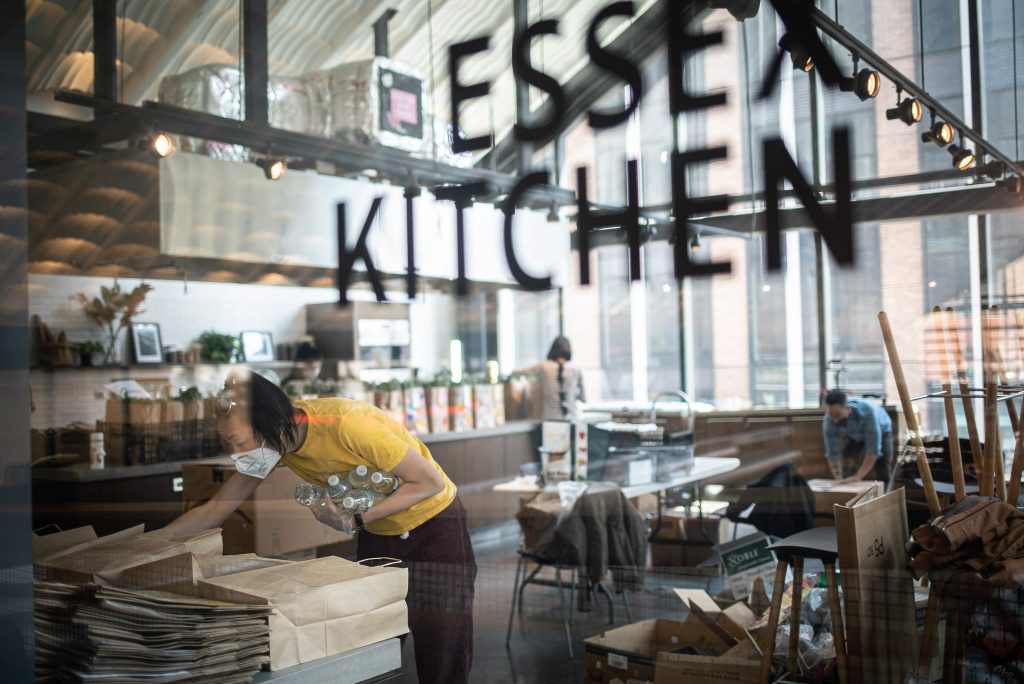
Building through the specificity of culture
The first time Yin Chang, 33, tried to cook a meal for 200 needy Asian elders, she accidentally dumped an entire bag of a five-spice mix into the braised Chinese fish stew she was trying to concoct in the kitchen of her 250-square-foot apartment. Chang is not much of a cook, she said, and was learning how to make a traditionally Chinese meal on the fly. She spent hours picking out star anise pods after her mishap, worrying that they could scrape up the inside of the seniors’ mouths who were going to receive this food.
“I was so worried about their gums,” said Chang.
Chang and her romantic partner Moonlynn Tsai, 35, run an organization called Heart of Dinner that provides meals to Asian elders. The two started serving Asian seniors last year, after watching a video of an elderly Asian man in the Bay Area being robbed and ridiculed in a COVID-19 related attack last spring, Tsai said. They later learned that elderly folks were particularly impacted by the pandemic because of concerns both for their safety and their health. They felt the need to create an initiative that catered specifically to them in ways that is deeply informed by their Asian heritage.
“We always take care of your elderly. We don’t put them into old folks’ homes,” said Chang.
The meals are delivered in bags adorned by volunteers and come with personalized notes written in Chinese, Japanese and Korean by people around the world. Many of the volunteers, especially at the beginning of the pandemic, are Asian but don’t speak any of the languages in which these notes are written. They often end up zooming in on and copying characters from Google translate onto paper.
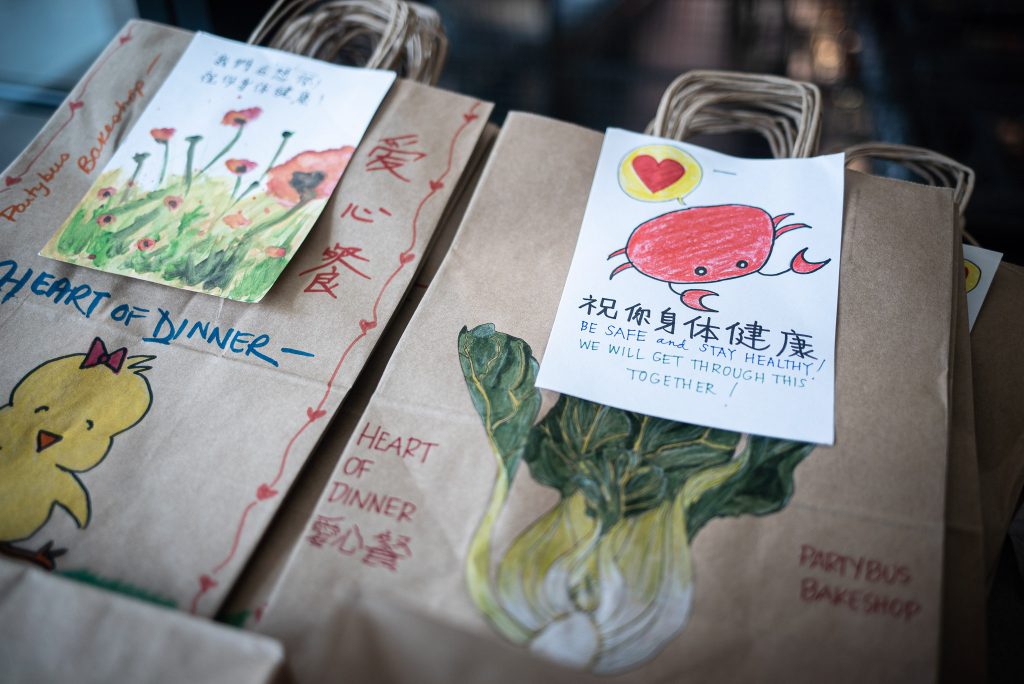
“When I was growing up in high school, it felt very segregated. The Koreans hung out with the Koreans, the Chinese hung out with the Chinese and if we were to mix we’d also be in a hierarchy. We cannot believe how now all of the different cultures of the Asian communities are coming together for this community-driven solution,” said Moonlynn.
“I’ve never been in such a loving community, specifically Asian community,” she said.
New York politicians whose constituents include Asians of multiple backgrounds have noted this shift within the Asian community in New York, too.
“New York City Asian identity is unique. And almost incomparable to some of our counterparts in other urban cities because of New York City’s unique, hyper competitive and hyper meritocratic culture that many Asians are part of,” New York State Assembly Member Ron Kim told Documented. “So this level of hyper competitiveness is ingrained in Asian communities, right from the moment they’re, our kids are born. And it says it’s at a point where it’s very difficult for us to build camaraderie around pan Asian solidarity.”
TestPost3
Also read: AAFE, a Nonprofit and One of Chinatown’s Largest Landlords, Has a Troubling Record
But the recent spate of events has only helped galvanize a larger and more diverse community —Asian and non-Asian—to have more nuanced conversations around the experience of Asians in the U.S. This could potentially bring about the kind of political momentum for legislation to consider Asians in more meaningful ways, said Kim.
“I’ve also attended my fair share of [Asian American protests] and they have never generated nearly the crowds that we have seen in the past four weeks,” John Liu told Documented in late March. He is a member of the New York State Senate who was first elected to the New York City Council in 2002 and has been on-and-off in local government positions since then.
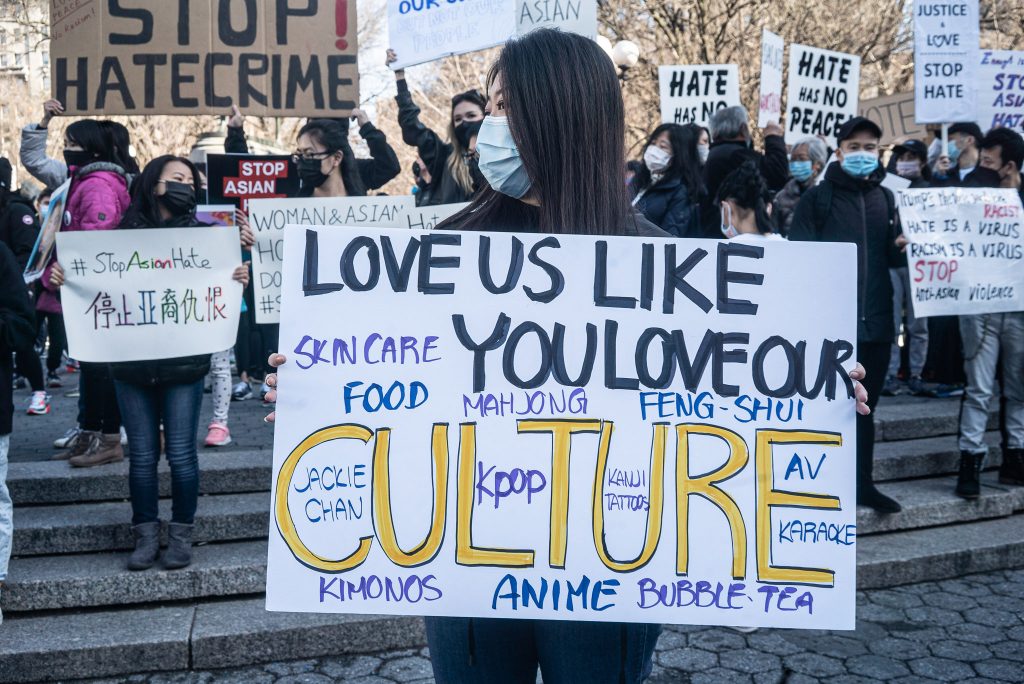
“It is a moment that is a major marker in history. In legislation, nationally and at the state-level and the recognition and Asian Americans cannot just be the model minority. […] There’s been a recognition that the government needs to better understand the AAPI community, explicitly understanding that the Asian community is by no means monolithic.”
